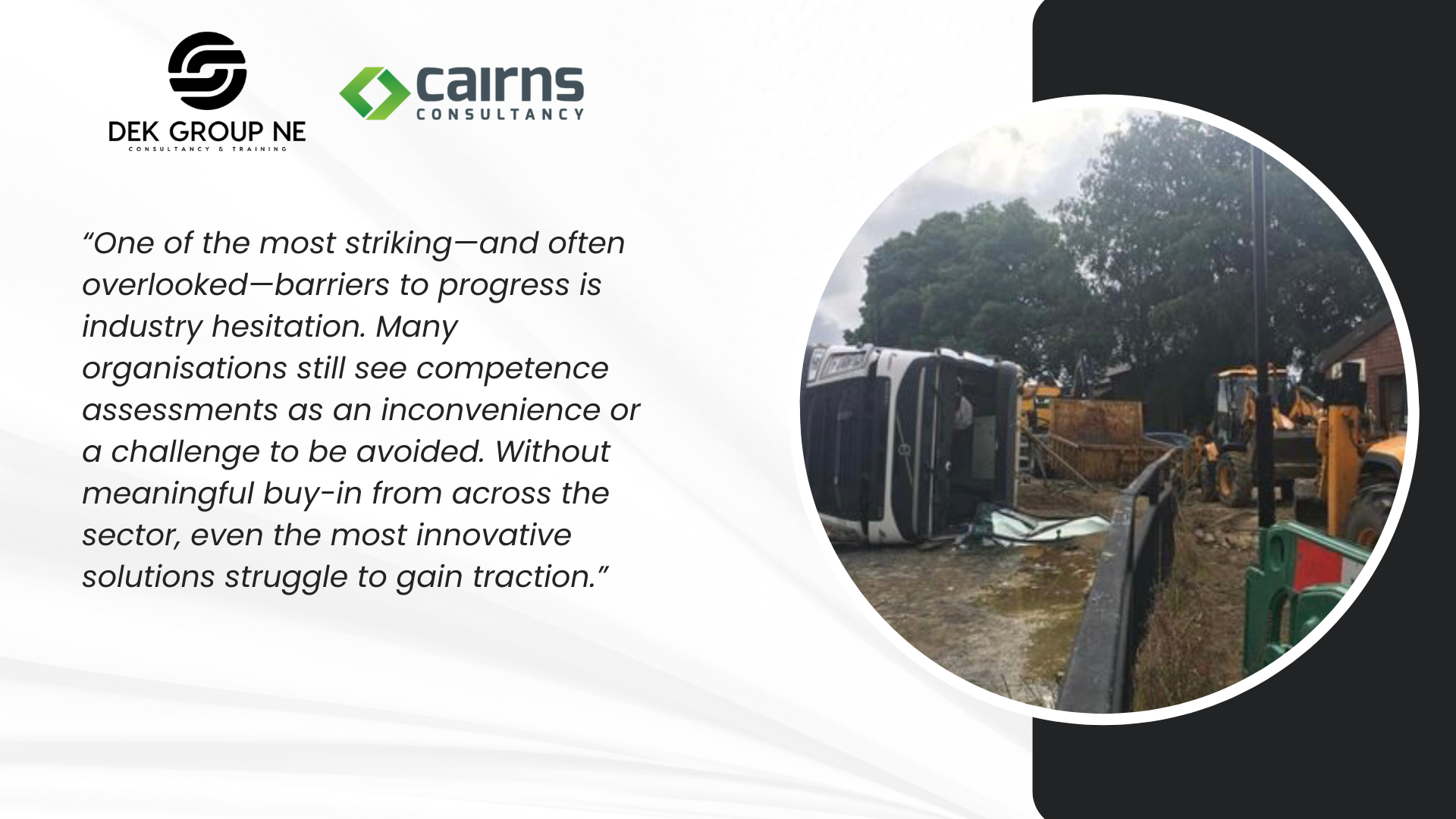Bridging the Gap
In the world of concrete, aggregates, minerals, and construction logistics, the role of professional drivers is often underestimated—despite being critical to site efficiency, road safety, and supply chain resilience.
However, with tighter regulations, evolving vehicle technologies, and rising expectations from clients and regulators alike, the industry is crying out for a more effective benchmark for on-road competence.
Now more than ever, as the industry evolves amid workforce challenges and environmental demands, we must place professional standards for drivers at the heart of sector progress.
General HGV qualifications are essential—but not sufficient—for vehicles operating on construction sites, quarries, and major infrastructure projects. The challenges faced by a mixer driver on a live construction project are fundamentally different from those of a long-distance haulier.
That changed with the development of the EMPI Awards Site Vehicle Competence Assessment (On-Road) (Mixers)—the world's first regulated, single-unit qualification designed specifically for drivers of on-road concrete mixer vehicles.
These single-unit qualifications, quickly followed by a vocational qualification for tipper drivers, were developed outside the traditional National Occupational Standards (NOS) framework. This demonstrates that qualifications can be agile, relevant, and sector-specific without the need for years-long consultation cycles.
Vocational qualifications built directly from operational insight, site risk profiles, and driver behaviours lived and observed in real-world working conditions.
National Occupational Standards (NOS) have historically underpinned vocational training in the UK.
However, when it comes to on-road driving—especially in industries like ours, where legal requirements, technology, and safety protocols are constantly evolving—NOS struggles to keep up.
The standards are often too slow to adapt to the realities on the ground, leaving both employers and drivers boxed in by outdated criteria.
That's why the industry needs a more responsive approach —one that evolves with the landscape and reflects real-world best practices.
Despite the innovation, one persistent challenge remains: the industry's reluctance to fully embrace competence-based assessments. For too long, specialist competence has been seen as an overhead, rather than a fundamental risk control.
Time to Reset the Standard?
The industry is crying out for a better benchmark for on-road competence. The role of professional drivers is often underestimated—despite being critical to site efficiency, road safety, and supply chain resilience.
If our sectors are to meet the demands of modern infrastructure, environmental compliance, and construction logistics, we need a new standard—one that's reactive, recognised, and relevant.
The next step in the evolutionary journey of developing driver competence solutions has seen DEK GROUP NE collaborating with Cairns Consultancy and Kate Cairns for over 12 months to bridge that gap, while respecting the financial and operational pressures facing businesses in the concrete, aggregates, and construction logistics supply chain.
Vehicles like concrete mixers and tippers operate in unpredictable, complex, and often public-facing environments. Without formalised, standardised assessment, we rely on patchwork training and assumed competence—often with serious consequences.
It's time to professionalise our driving workforce in a way that's both practical and affordable.
In our sectors, competence isn't just a nice-to-have—it's safety-critical.
We look forward to sharing more in the coming weeks.

